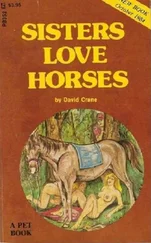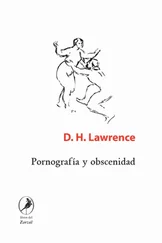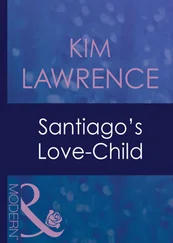David Lawrence - Women in Love
Здесь есть возможность читать онлайн «David Lawrence - Women in Love» весь текст электронной книги совершенно бесплатно (целиком полную версию без сокращений). В некоторых случаях можно слушать аудио, скачать через торрент в формате fb2 и присутствует краткое содержание. Год выпуска: 2003, Жанр: Классическая проза, Современные любовные романы, на английском языке. Описание произведения, (предисловие) а так же отзывы посетителей доступны на портале библиотеки ЛибКат.
- Название:Women in Love
- Автор:
- Жанр:
- Год:2003
- ISBN:нет данных
- Рейтинг книги:3 / 5. Голосов: 1
-
Избранное:Добавить в избранное
- Отзывы:
-
Ваша оценка:
- 60
- 1
- 2
- 3
- 4
- 5
Women in Love: краткое содержание, описание и аннотация
Предлагаем к чтению аннотацию, описание, краткое содержание или предисловие (зависит от того, что написал сам автор книги «Women in Love»). Если вы не нашли необходимую информацию о книге — напишите в комментариях, мы постараемся отыскать её.
Women in Love — читать онлайн бесплатно полную книгу (весь текст) целиком
Ниже представлен текст книги, разбитый по страницам. Система сохранения места последней прочитанной страницы, позволяет с удобством читать онлайн бесплатно книгу «Women in Love», без необходимости каждый раз заново искать на чём Вы остановились. Поставьте закладку, и сможете в любой момент перейти на страницу, на которой закончили чтение.
Интервал:
Закладка:
'Do let us go to the shore, to follow them,' she said, afraid of being any longer imprisoned on the island. And they pushed off in the punt.
She was glad to be on the free land again. She went along the bank towards the sluice. The daisies were scattered broadcast on the pond, tiny radiant things, like an exaltation, points of exaltation here and there. Why did they move her so strongly and mystically?
'Look,' he said, 'your boat of purple paper is escorting them, and they are a convoy of rafts.'
Some of the daisies came slowly towards her, hesitating, making a shy bright little cotillion on the dark clear water. Their gay bright candour moved her so much as they came near, that she was almost in tears.
'Why are they so lovely,' she cried. 'Why do I think them so lovely?'
'They are nice flowers,' he said, her emotional tones putting a constraint on him.
'You know that a daisy is a company of florets, a concourse, become individual. Don't the botanists put it highest in the line of development? I believe they do.'
'The compositae, yes, I think so,' said Ursula, who was never very sure of anything. Things she knew perfectly well, at one moment, seemed to become doubtful the next.
'Explain it so, then,' he said. 'The daisy is a perfect little democracy, so it's the highest of flowers, hence its charm.'
'No,' she cried, 'no—never. It isn't democratic.'
'No,' he admitted. 'It's the golden mob of the proletariat, surrounded by a showy white fence of the idle rich.'
'How hateful—your hateful social orders!' she cried.
'Quite! It's a daisy—we'll leave it alone.'
'Do. Let it be a dark horse for once,' she said: 'if anything can be a dark horse to you,' she added satirically.
They stood aside, forgetful. As if a little stunned, they both were motionless, barely conscious. The little conflict into which they had fallen had torn their consciousness and left them like two impersonal forces, there in contact.
He became aware of the lapse. He wanted to say something, to get on to a new more ordinary footing.
'You know,' he said, 'that I am having rooms here at the mill? Don't you think we can have some good times?'
'Oh are you?' she said, ignoring all his implication of admitted intimacy.
He adjusted himself at once, became normally distant.
'If I find I can live sufficiently by myself,' he continued, 'I shall give up my work altogether. It has become dead to me. I don't believe in the humanity I pretend to be part of, I don't care a straw for the social ideals I live by, I hate the dying organic form of social mankind—so it can't be anything but trumpery, to work at education. I shall drop it as soon as I am clear enough—tomorrow perhaps—and be by myself.'
'Have you enough to live on?' asked Ursula.
'Yes—I've about four hundred a year. That makes it easy for me.'
There was a pause.
'And what about Hermione?' asked Ursula.
'That's over, finally—a pure failure, and never could have been anything else.'
'But you still know each other?'
'We could hardly pretend to be strangers, could we?'
There was a stubborn pause.
'But isn't that a half-measure?' asked Ursula at length.
'I don't think so,' he said. 'You'll be able to tell me if it is.'
Again there was a pause of some minutes' duration. He was thinking.
'One must throw everything away, everything—let everything go, to get the one last thing one wants,' he said.
'What thing?' she asked in challenge.
'I don't know—freedom together,' he said.
She had wanted him to say 'love.'
There was heard a loud barking of the dogs below. He seemed disturbed by it. She did not notice. Only she thought he seemed uneasy.
'As a matter of fact,' he said, in rather a small voice, 'I believe that is Hermione come now, with Gerald Crich. She wanted to see the rooms before they are furnished.'
'I know,' said Ursula. 'She will superintend the furnishing for you.'
'Probably. Does it matter?'
'Oh no, I should think not,' said Ursula. 'Though personally, I can't bear her. I think she is a lie, if you like, you who are always talking about lies.' Then she ruminated for a moment, when she broke out: 'Yes, and I do mind if she furnishes your rooms—I do mind. I mind that you keep her hanging on at all.'
He was silent now, frowning.
'Perhaps,' he said. 'I don't WANT her to furnish the rooms here—and I don't keep her hanging on. Only, I needn't be churlish to her, need I? At any rate, I shall have to go down and see them now. You'll come, won't you?'
'I don't think so,' she said coldly and irresolutely.
'Won't you? Yes do. Come and see the rooms as well. Do come.'
CHAPTER XII.
CARPETING
He set off down the bank, and she went unwillingly with him. Yet she would not have stayed away, either.
'We know each other well, you and I, already,' he said. She did not answer.
In the large darkish kitchen of the mill, the labourer's wife was talking shrilly to Hermione and Gerald, who stood, he in white and she in a glistening bluish foulard, strangely luminous in the dusk of the room; whilst from the cages on the walls, a dozen or more canaries sang at the top of their voices. The cages were all placed round a small square window at the back, where the sunshine came in, a beautiful beam, filtering through green leaves of a tree. The voice of Mrs Salmon shrilled against the noise of the birds, which rose ever more wild and triumphant, and the woman's voice went up and up against them, and the birds replied with wild animation.
'Here's Rupert!' shouted Gerald in the midst of the din. He was suffering badly, being very sensitive in the ear.
'O-o-h them birds, they won't let you speak—!' shrilled the labourer's wife in disgust. 'I'll cover them up.'
And she darted here and there, throwing a duster, an apron, a towel, a table-cloth over the cages of the birds.
'Now will you stop it, and let a body speak for your row,' she said, still in a voice that was too high.
The party watched her. Soon the cages were covered, they had a strange funereal look. But from under the towels odd defiant trills and bubblings still shook out.
'Oh, they won't go on,' said Mrs Salmon reassuringly. 'They'll go to sleep now.'
'Really,' said Hermione, politely.
'They will,' said Gerald. 'They will go to sleep automatically, now the impression of evening is produced.'
'Are they so easily deceived?' cried Ursula.
'Oh, yes,' replied Gerald. 'Don't you know the story of Fabre, who, when he was a boy, put a hen's head under her wing, and she straight away went to sleep? It's quite true.'
'And did that make him a naturalist?' asked Birkin.
'Probably,' said Gerald.
Meanwhile Ursula was peeping under one of the cloths. There sat the canary in a corner, bunched and fluffed up for sleep.
'How ridiculous!' she cried. 'It really thinks the night has come! How absurd! Really, how can one have any respect for a creature that is so easily taken in!'
'Yes,' sang Hermione, coming also to look. She put her hand on Ursula's arm and chuckled a low laugh. 'Yes, doesn't he look comical?' she chuckled. 'Like a stupid husband.'
Then, with her hand still on Ursula's arm, she drew her away, saying, in her mild sing-song:
'How did you come here? We saw Gudrun too.'
'I came to look at the pond,' said Ursula, 'and I found Mr Birkin there.'
'Did you? This is quite a Brangwen land, isn't it!'
'I'm afraid I hoped so,' said Ursula. 'I ran here for refuge, when I saw you down the lake, just putting off.'
'Did you! And now we've run you to earth.'
Hermione's eyelids lifted with an uncanny movement, amused but overwrought. She had always her strange, rapt look, unnatural and irresponsible.
Читать дальшеИнтервал:
Закладка:
Похожие книги на «Women in Love»
Представляем Вашему вниманию похожие книги на «Women in Love» списком для выбора. Мы отобрали схожую по названию и смыслу литературу в надежде предоставить читателям больше вариантов отыскать новые, интересные, ещё непрочитанные произведения.
Обсуждение, отзывы о книге «Women in Love» и просто собственные мнения читателей. Оставьте ваши комментарии, напишите, что Вы думаете о произведении, его смысле или главных героях. Укажите что конкретно понравилось, а что нет, и почему Вы так считаете.











